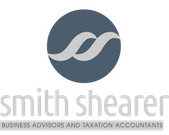
Master Your Money: EOFY Checklist for Small Businesses
July's here, which means it's time to think about more than just finalising your books in preparation for your annual work. Whether you're running a grain farm around Esperance or a family business in town, this time of year is your chance to set things up properly for the year ahead.
Think of it this way – you wouldn't head into seeding season without checking your machinery first. Likewise, you wouldn’t jump into the hectic tourist season in a retail business without preparing for the busy rush. Same goes for your finances. A bit of planning now can save you headaches later and put more money back in your pocket.
We've put together a simple checklist you can grab and work through at your own pace. [Download your checklist here] – no fancy stuff, just the things that actually matter.
Getting the Most Out of Your Equipment Write-offs
Purchasing assets for use in your business costs serious money, and the tax office knows it. There are decent rules in place to help you claim back what you can, but you need to know how to use them properly. For example, you may be eligible for incentives such as the instant asset write-off, (head over to the ATO website for more information or reach out to us to discuss your individual situation).
It’s also important to consider the timing of any equipment purchases. Where possible, line up your write-offs with your cash flow and loan payments. This helps smooth out the ups and downs while making sure you're claiming everything you're entitled to. Keep good records of what you've got – it's essential if you want to get the full benefit.
Valuing Your Stock and Inventory
How you value what you've got sitting on the shelves can make a real difference to your tax bill and cash flow.
If you're in retail or manufacturing, the value generally equates to cost price or what you could realistically sell it for, keeping in mind things like whether stock is getting old. Whatever method of valuation you choose to go with, we recommend sticking with it each year. Write down what you're doing and why – it keeps the tax office happy and helps you make better decisions down the track.
Making Super Work Harder for You
Super isn't just something that happens in the background – it's actually a good way to build wealth and plan for handing things over to the next generation. The tax breaks you get through super can really add up over time.
It’s worthwhile considering whether additional contributions into superannuation may be a beneficial tax planning strategy – particularly if you are expecting a good year and can afford it. Super can also be a tax-effective vehicle when it comes to business succession and estate planning. We recommend having a chat to us about this.
All in all, when it comes to superannuation we recommend the following:
-
Start planning early in the financial year
-
Check in with us regularly
-
Keep good records.
Super rules can get complicated though, so we always recommend communicating with us to ensure you are remaining compliant.
Capital Gains Tax – What You Need to Know
When you're thinking about selling assets or passing them to family, Capital Gains Tax (CGT) is something you’ll need to get your head around. The mindset shouldn’t be around dodging tax, rather, it’s about timing things right so you don't pay more than you need to.
Small businesses may be able to access concessions such as the 15-year exemption and retirement exemption. As always, everyone's situation is different, and we recommend talking to us about exactly what you may be entitled to.
Key thoughts: keep good records from day one and plan ahead. CGT exemptions can save you thousands, but you need to set things up properly to access any exemptions.
Tax Breaks and Rebates You Might Be Missing
There are quite a few tax breaks designed for different types of businesses. The trouble is, many people don't know about them or forget to claim them. It’s always worthwhile for businesses to look at research and development incentives, export grants, and instant write-offs.
Make it a habit to check what you're eligible for each year, keep detailed records, and have regular catch-ups with us. These aren't one-off deals – they're ongoing opportunities that can really add up.
Why Good Records Matter
Keeping accurate financial records isn't just about staying on the right side of the tax office – it's about understanding how your business is really performing. Think of your financial data similar to a dashboard in your car – it tells you what's working and what needs attention.
Regular chats with us turn those numbers into useful information. Your records tell the story of how your business is tracking, help you spot trends, and show banks that you know what you're doing.
Ready for the Next Step?
These strategies aren't just theory – they're practical tools that can make a real difference to your bottom line. The key is actually doing something about it, and that starts with a conversation with your us about what makes sense for your situation.
Every business is different, and what works for your neighbour might not be right for you. Getting proper advice means you're putting together a plan that actually fits your goals.
Ready to put this into action? [Download your EOFY Checklist Here] and get started.
Your future self will thank you for taking the time to do this properly.




